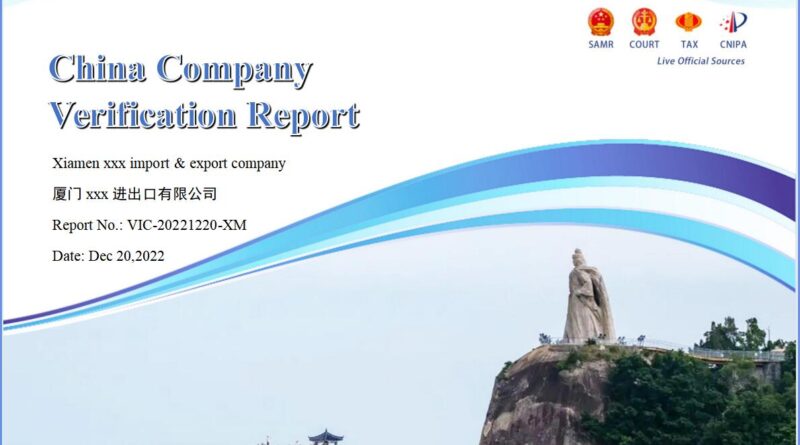10 Tips for Verifying a China Company
10 Tips for Verifying a China Company
As the world’s manufacturing hub and a major player in the global economy, China is home to numerous companies operating in various industries. For businesses looking to engage in international trade and partnerships, verifying the legitimacy and credibility of a Chinese company is of paramount importance. Unfortunately, cases of fraudulent companies and scams have been reported, making due diligence an essential step in establishing successful and secure business relationships. In this article, we will outline ten valuable tips to help you verify china company and protect your interests.
1. Company Registration Information:
The first step in verify china company is to obtain its official registration information. In China, all legitimate companies must be registered with the State Administration for Industry and Commerce (SAIC). Request the company’s full legal name, registration number, and registered address. Cross-reference this information with the SAIC database or trusted business directories to ensure its authenticity.
2. Business License:
A genuine Chinese company should possess a valid business license. Request a copy of their business license and verify it with the local authorities. Pay attention to any discrepancies or inconsistencies in the license details.
3. Physical Presence:
Ensure that the company has a physical presence, such as an office or factory. If possible, conduct a site visit to assess their operations and confirm their existence. A physical presence signifies a higher level of credibility and reduces the risk of dealing with virtual or non-existent companies.
4. Legal Representative and Key Personnel:
Identify the legal representative and key personnel of the company. Verify their identities and roles within the organization. Reliable companies will be transparent about their leadership team and provide the necessary information.
5. Company Reputation and History:
Research the company’s reputation and history. Check for online reviews, testimonials, and feedback from previous clients or business partners. This information can offer insights into their reliability and the quality of their services or products.
6. Business References:
Ask the company to provide references from their previous clients or partners. Reach out to these references and inquire about their experience working with the company. Honest feedback from past collaborators can help you make an informed decision.
7. Financial Standing:
Assess the company’s financial standing to gauge its stability and capability to fulfill financial obligations. Request financial statements or credit reports, and consider consulting financial experts to analyze the company’s financial health.
8. Intellectual Property Rights (IPR) and Certifications:
Verify if the company holds any intellectual property rights or certifications related to their products or services. This ensures that their offerings meet the necessary quality standards and adhere to international regulations.
9. Export/Import Records:
Examine the company’s export/import records to determine their experience in international trade. Access this information through customs databases or relevant authorities to verify their claims about their export/import activities.
10. Engage Third-Party Verification Services:
Consider employing the services of professional verification agencies that specialize in checking the authenticity of Chinese companies. These agencies can conduct comprehensive background checks, confirm registration details, and provide valuable insights to mitigate potential risks.
Conclusion:
When engaging in business transactions with a China company, thorough verification is essential to safeguard your interests and establish trustworthy partnerships. By following the ten tips outlined in this article, you can minimize the risk of falling victim to scams and fraudulent activities. Remember that due diligence is an ongoing process, especially for long-term collaborations, and regular monitoring of your business partners is crucial to maintaining a successful and secure relationship.



